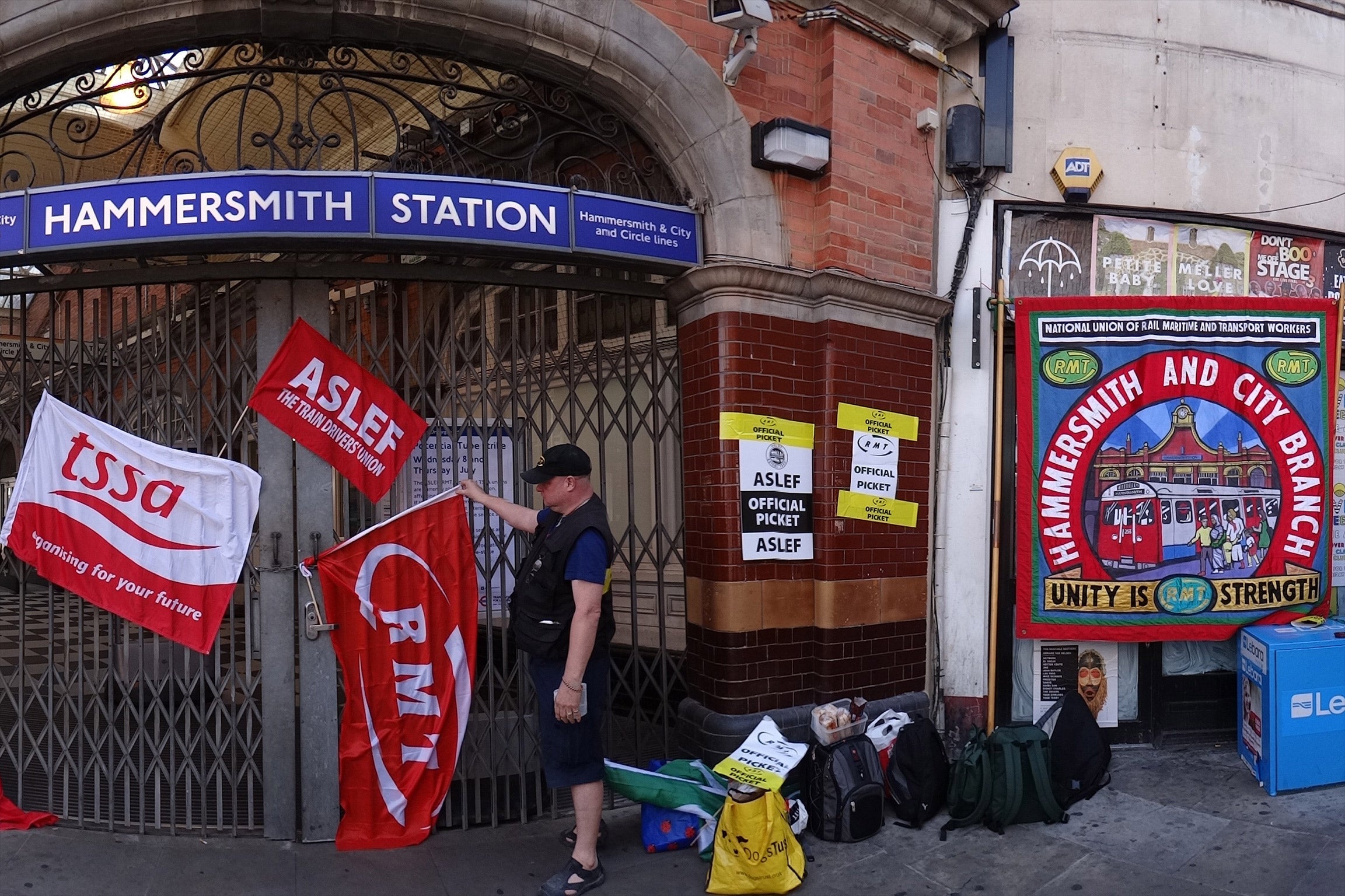Trade union strike law reforms Q&A: What are the Tories proposing?
The most radical trade union reforms since the Thatcher years could come into effect as early as next year

Your support helps us to tell the story
From reproductive rights to climate change to Big Tech, The Independent is on the ground when the story is developing. Whether it's investigating the financials of Elon Musk's pro-Trump PAC or producing our latest documentary, 'The A Word', which shines a light on the American women fighting for reproductive rights, we know how important it is to parse out the facts from the messaging.
At such a critical moment in US history, we need reporters on the ground. Your donation allows us to keep sending journalists to speak to both sides of the story.
The Independent is trusted by Americans across the entire political spectrum. And unlike many other quality news outlets, we choose not to lock Americans out of our reporting and analysis with paywalls. We believe quality journalism should be available to everyone, paid for by those who can afford it.
Your support makes all the difference.Plans for the most radical crackdown on trade union power in three decades have been unveiled by the government.
The measures, laid out in the Trade Union Bill, could come into effect as early as next year if they are approved by MPs in the autumn.
What are the harshest measures in the bill?
Banning workers in key public sectors from striking unless industrial action is supported by at least 40 per cent of all those eligible to vote.
The move means that any worker who abstains in a strike vote or forgets to return their ballot paper will effectively be deemed to be opposing the move.
Which workers would this apply to?
Nurses, teachers, train drivers, Border Force staff, fire fighters and those who work in nuclear decommissioning.
What other sectors will be affected?
In other sectors that are not deemed as vital public services, strike action will be curtailed with a new 50 per cent turnout threshold for industrial action to be legal.
What other restrictions will be imposed on strike action?
Under the plans, unions will have to go ahead with strike action within four months of the vote to ensure industrial action is “always recent”.
What will change to ballot papers?
There will be a new requirement for unions to provide a clear description of the trade dispute and the planned industrial action on the ballot paper.
Will companies be empowered in other ways too?
Yes, because trade unions will have to give employers 14 days notice of strike action and will also allow firms to bring in agency staff to cover for striking workers, effectively breaking up strike action and making the industrial action significantly less effective.
What justification has the government given for the plans?
Sajid Javid, the Business Secretary, insists the plans are about ensuring strike action always has the support of the majority of the workforce and says they will even out the balance between powerful trade unions and the rights and interests of businesses, consumers and commuters.
Join our commenting forum
Join thought-provoking conversations, follow other Independent readers and see their replies
Comments